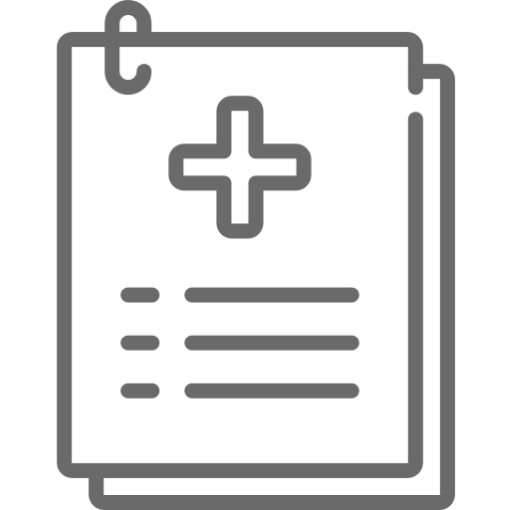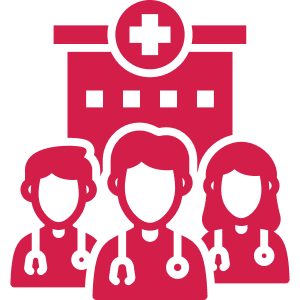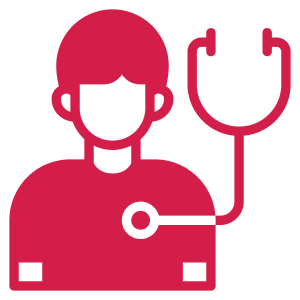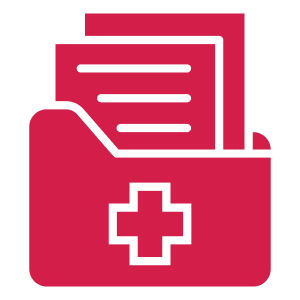Looking for a full body checkup in Bangalore? Koshikaa offers advanced health checkup packages near you bangalore designed to detect health issues early.
Wherever you present in the Bangalore city, our expert diagnostics will guide you to stay proactive about your complete body health.
Book your full body checkup today and get personalized insights for a better tomorrow.
A full body heath checkup is a complete health exam (health checkup) that checks how well your body is working. It includes tests like blood tests, X-rays, ultrasounds, and checks for your heart and other organs. Unlike regular doctor visits, it helps find problems like diabetes, high cholesterol, or early signs of serious conditions before they get worse.
Getting a full-body health checkup in Bangalore gives you a clear understanding of your health, so you can make smart choices for a healthier life.
Stay healthy with our full body health checkup packages in Bangalore to catch health problems early and feel your best.

Soft and Hard copy of reports available

Soft and Hard copy of reports available

Soft and Hard copy of reports available

Soft and Hard copy of reports available

Soft and Hard copy of reports available
A koshikaa’ s full body checkup packages in bangalore includes a variety of tests to evaluate your health comprehensively. Below are some key tests included in most packages:
| Test | Purpose | Conditions Detected |
|---|---|---|
| Blood Sugar Test | Measures glucose levels to assess diabetes risk | Diabetes, Prediabetes |
| Lipid Profile | Evaluates cholesterol and heart health | High cholesterol, Heart disease risk |
| Complete Blood Count (CBC) | Assesses red/white blood cells and platelets | Anemia, Infections, Blood disorders |
| Liver Function Test (LFT) | Checks liver enzyme and protein levels | Hepatitis, Fatty liver, Liver dysfunction |
| Kidney Function Test (KFT) | Evaluates kidney performance | Kidney disease, Urinary tract infections |
| Thyroid Function Test | Measures T3, T4, TSH for thyroid health | Hypothyroidism, Hyperthyroidism |
| Iron Deficiency Test | Assesses iron levels in blood | Anemia, Chronic fatigue |
We focus on your health with modern equipment and a caring team of doctors. Here’s why Bangalore chooses us:

Advanced MRI, CT scans, and ultrasounds for precise results.

Highly qualified doctors provide personalized health advice.
Multiple centers across Bangalore, including Indiranagar and HSR Layout.

Health checkups tailored for men, women, Senior Citizens, and specific conditions like diabetes or heart health.

Detailed health reports delivered within 24-48 hours with actionable recommendations.
With over 10,000 satisfied patients, Koshikaa is Bangalore’s trusted choice for health screenings and considered as best hospital for full body checkup in bangalore (for full body checkup in bangalore price). Our NABH-accredited centers, advanced technology, and compassionate care ensure you receive the best experience. Don’t wait for symptoms—prioritize your health today.
Book Your Full Body Checkup Now!
Schedule your appointment at Koshikaa. Call +91 90198 00764 or click here to book online. Your health deserves the best start to your wellness journey with Koshikaa.1. Chronic Conditions
2. Conditions Associated with the Heart (Cardiovascular diseases):
Echocardiograms and ECGs detect abnormalities in the heart, whereas lipid profiles quantify cholesterol levels.
3. Disorders of the Liver and Kidney
4. People with Stressful or Sedentary Lifestyles
People with high levels of stress or a sedentary lifestyle are more likely to develop metabolic diseases, obesity, and cardiovascular issues.
5. Cancer Screening
Early cancer detection is aided by tumor markers and imaging techniques such as CT or MRI scans.
6. Joint and Bone Problems
X-rays can identify bone abnormalities such as fractures and osteoporosis.
7. Infectious Diseases
Blood Test and Urine Examination can identify localized problems like urinary tract infections or systemic illnesses.
8. Nutritional Deficiencies
Tests for vitamins and minerals reveal deficits (such as those in vitamin D and vitamin B12) that may affect long-term health.
9. Hormonal Imbalances
Other hormonal assessments detect metabolic or reproductive problems, while thyroid function tests detect hypo or hyperthyroidism.
A full body checkup is a comprehensive health screening that helps identify potential health issues before they escalate. Depending on their age, lifestyle, and health status, a full body checkup is highly recommended for a number of people.
1. Individuals with a Family History of Health Issues
People who have a genetic predisposition to conditions like diabetes, heart disease, or cancer should think about getting regular screenings to keep a close eye on their health.
2. Adults Over 30 Years
Routine checkups are especially important for people over 30 years old because lifestyle-related conditions like diabetes, high blood pressure, and high cholesterol frequently start to manifest in this age group.
3. People with Stressful or Sedentary Lifestyles
People with high levels of stress or a sedentary lifestyle are more likely to develop metabolic diseases, obesity, and cardiovascular issues.
4. Patients with Chronic Illness
To monitor their progress and modify treatment programs as needed, people with chronic diseases like diabetes, hypertension, or arthritis must have regular health examinations.
4. Patients with Chronic Illness
To monitor their progress and modify treatment programs as needed, people with chronic diseases like diabetes, hypertension, or arthritis must have regular health examinations.
5. Health-Conscious Individuals
Regular whole-body examinations offer comfort and a chance to proactively preserve your health, even if you feel good.
6. People in High-Risk Environments
People who are exposed to pollution, hazardous jobs, or unhygienic surroundings should have regular health examinations to identify such issues early.
To assess your general health and spot possible problems early, a full body checkup entails several diagnostic tests. Some of the most often included tests are listed below, though the specific tests may differ depending on the health plan you select:
1. Test for blood sugar
This test helps identify or track diabetes by measuring the amount of glucose in your blood. It can show symptoms of prediabetes or diabetes and is crucial for knowing how your body uses sugar.
2. Lipid Profile Test
Total cholesterol (TCL), high-density lipoprotein (HDL, or “good cholesterol”), and low-density lipoprotein (LDL, or “bad cholesterol”) are all measured via a lipid profile. Heart health depends on maintaining healthy cholesterol levels.
3. Complete Blood Count (CBC)
Red blood cell, white blood cell, and platelet counts are assessed by the CBC test. It aids in the detection of anemia, infections, and other disorders that may alter blood composition.
4. Liver Function Test (LFT)
This test measures particular enzymes, proteins, and bilirubin to assess the condition of your liver. It aids in the diagnosis of liver disorders and tracks how drugs affect liver function.
5. Kidney Function Test (KFT)
Your kidneys’ ability to filter blood and preserve electrolyte balance is gauged by KFT. It is essential for determining kidney-related problems and maintaining renal health in general.
6. Check for Iron Deficiency
In order to diagnose anemia, chronic fatigue, or other disorders associated with iron imbalance, iron investigations measure the amount of iron in your blood.
7. Thyroid Examination
To screen for conditions like hypothyroidism or hyperthyroidism, this test measures the levels of the thyroid hormones T3, T4, and TSH. The thyroid must work properly in order to control energy levels and metabolism.
8. Additional Tests
For a more thorough evaluation of your health, your whole body exam may also include tests like cardiac indicators, vitamin profiles, and imaging studies (such as X-rays or ultrasounds), depending on your package.
Stay ahead of your wellness journey by selecting a complete full-body exam plan that meets your needs.
By including these tests in a routine physical examination, possible problems can be identified early and treated promptly. It’s a proactive strategy for maintaining good health and avoiding issues.
The benefits of a full body health checkup include:
Living in Bangalore comes with unique challenges. Long commutes, high stress, pollution, and sedentary lifestyles can silently impact your health. These factors increase the risk of conditions like heart disease, diabetes, and obesity.
A full-body checkup acts as a diagnostic mirror, revealing what’s working well and highlighting areas needing attention. Regular screenings ensure you stay proactive, catching potential issues early and maintaining your health amidst the city’s hustle.
As the Best Health Screening Centre in Bangalore, we offer comprehensive health checkups designed to assess your overall well-being through a series of essential medical tests. These checkups typically include blood sugar levels, lipid profile, liver and kidney function, thyroid tests, vitamin levels, complete blood count (CBC), and more.
By identifying potential health risks early, Koshikaa’s diagnostic approach supports preventive care and helps individuals maintain optimal health. Our centers are equipped with modern lab facilities and certified medical professionals to ensure accurate, reliable results.
Book an Affordable Full Body Checkup at Koshikaa Screening Centre is easy and takes less than a minute. Just follow these 4 simple steps:
Enter your name, mobile number, and email. It helps us contact you quickly and confirm your appointment.

Our team will call you to confirm your appointment and guide you on any instructions for the scan.

Once confirmed, you’ll receive the appointment details, center address, and reporting time directly to your phone or inbox.

Visit the center at your scheduled time. Our expert team will ensure a smooth, comfortable experience.
A full body checkup is a thorough examination that assesses your general health. In order to identify possible health problems early, involves several diagnostic tests, including imaging scans, blood tests, and evaluations of critical organs.
Frequent full-body examinations facilitate prompt preventive action, enhance treatment results, and aid in the early detection of health issues. They are crucial for preserving long-term health and managing risks associated with lifestyle choices, such as diabetes, high blood pressure, and heart disease.
A typical full-body examination consists of:
Yes, testing like blood sugar and lipid profiles typically require an 8–12 hour fast. Specific instructions will be given at the time of your appointment.
It is quite safe to have a full body examination. Advanced diagnostic tools are used in non-invasive or minimally invasive tests that are performed under the supervision of expert technicians.
Depending on how many and how complicated the tests are, a full body examination usually takes three to five hours.
Numerous diagnostic facilities provide packages that can be tailored to your health requirements, family history, and physician’s advice.
Results are typically accessible in 24 to 48 hours. Advanced diagnostic or imaging testing could take longer. A thorough health assessment with practical recommendations will also be given to you.
Koshikaa is a trusted Full Body Checkup Centre in Bangalore offering comprehensive health screening with advanced diagnostic facilities, expert staff, and accurate reporting.
Our checkup packages are designed to detect health issues early and support preventive care.
A Full Body Checkup in Bangalore helps evaluate vital organs, nutrient levels, heart health, sugar levels, and overall body functioning.
It identifies early signs of medical conditions such as diabetes, heart disease, liver or kidney issues, allowing timely treatment and lifestyle changes before symptoms appear.
The cost of a Full-Body Checkup in Bangalore typically ranges from ₹1,999 to ₹7,999, depending on the package, the number of tests included, and the level of detailed screening.
At Koshikaa, we offer affordable and transparent pricing for all full-body health checkup packages.
Koshikaa is a preferred choice for a Full Body Checkup in Bangalore because we offer:
At Koshikaa, we focus on preventive healthcare and early diagnosis for better long-term health.
A typical Full Body Checkup at Koshikaa includes:
These tests provide a complete overview of your current health status based on the test results.
Anyone looking to monitor their health proactively should consider Health Checkups in Bangalore. These are especially recommended for working professionals, people above 30 years, individuals with a family history of diabetes, heart disease or thyroid issues, senior citizens, and those experiencing stress, fatigue, or lifestyle-related concerns.
A Full Body Health Checkup in Bangalore is essential because today’s fast-paced lifestyle, pollution, stress, and unhealthy eating habits increase the risk of chronic diseases.
Regular health checkups help detect problems early, prevent complications, and ensure better long-term health through timely treatment and lifestyle changes.
You should consider a Full Body Checkup in Bangalore if you experience symptoms such as:
Even without symptoms, an annual health checkup is strongly recommended.
A comprehensive and advanced health checkup in Bangalore includes a wider range of tests, such as:
These packages are ideal for senior citizens, people with medical conditions, or those wanting a more in-depth health analysis. Which might be costlier than the Executive & Basic health check-up in Bangalore.
Some insurance providers in Bangalore partially or fully cover Full Body Health Checkups in Bangalore under preventive healthcare benefits. Coverage depends on your policy type. We recommend checking with your insurance provider to confirm eligibility.
Booking your Full Body Checkup in Bangalore at Koshikaa is simple:
Our team will assist you with scheduling and preparation guidelines.
Bone X-rays are essential for diagnosing fractures and assessing bone alignment, aiding doctors in developing treatment plans and monitoring healing progress. They provide detailed images of the skeletal system, helping identify abnormalities or injuries that may not be visible through other imaging techniques